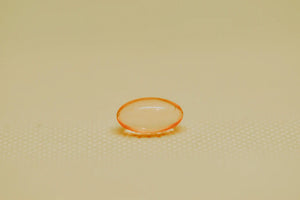Discover the Power of Omega Fatty Acids Today!
Apr 16, 2025
Frequently Asked Questions
1. What are omega fatty acids?
2. What are the main types of omega fatty acids?
3. What are the health benefits of omega-3 fatty acids?
4. How can I incorporate omega fatty acids into my diet?
5. Are there any risks associated with omega fatty acids?
In today's health-conscious world, omega fatty acids have gained significant attention for their multifaceted benefits on overall well-being. From heart health to supporting brain function, understanding these essential fats can open the door to a healthier lifestyle. This article aims to explore the different types of omega fatty acids, their health benefits, sources, and how you can incorporate them into your daily diet.
Understanding Omega Fatty Acids
Omega fatty acids are a group of polyunsaturated fats vital for our body's functioning. They are not produced by the body naturally, which means we must obtain them through our diet. There are three primary types of omega fatty acids: Omega-3, Omega-6, and Omega-9.
The Omega-3 Family
Omega-3 fatty acids have been extensively studied for their potent anti-inflammatory properties and heart-health benefits. The three main types of omega-3s include:
- Ala (Alpha-linolenic acid): Primarily found in plant sources like flaxseeds, chia seeds, and walnuts.
- Epa (Eicosapentaenoic acid): Mostly found in fatty fish like salmon and sardines, known for cardiovascular benefits.
- Dha (Docosahexaenoic acid): Essential for brain development and function, predominantly sourced from seafood.
The Omega-6 Family
Omega-6 fatty acids are another essential type that plays a crucial role in brain function and normal growth and development. While omega-6s are also important, balance is key. They include:
- Linoelic acid: Found in various vegetable oils such as sunflower and corn oil.
- Arachidonic acid: Found in animal products and is important for cellular function.
The Omega-9 Family
Unlike omega-3 and omega-6 fatty acids, omega-9s are not deemed essential since our bodies can produce them. However, they can still contribute positively to health. Common sources of omega-9 include:
- Olive oil: Known for its heart-healthy properties.
- Avocado: Rich in monounsaturated fats and adds creaminess to dishes.
Health Benefits of Omega Fatty Acids
Incorporating omega fatty acids into your diet can yield a range of health benefits. Here are some significant advantages:
Heart Health
Omega-3 fatty acids are well documented for their heart-health benefits. They help reduce triglycerides, lower blood pressure, and decrease the risk of heart disease. Studies consistently show that people who consume omega-3 rich foods have a lower risk of coronary heart disease.
Brain Function
Both EPA and DHA play crucial roles in brain development and function. They are involved in cognitive processes, and studies have linked omega-3 intake to a reduction in the risk of neurodegenerative diseases like Alzheimer’s.
Anti-Inflammatory Properties
Omega-3 fatty acids, in particular, have been celebrated for their anti-inflammatory effects. This can alleviate symptoms of chronic diseases such as arthritis and other inflammatory conditions.
Boosting Mood and Mental Health
There is growing evidence that omega-3 fatty acids can positively affect mental health. Some studies suggest omega-3 supplementation can help alleviate depression and anxiety, making them essential for mental well-being.
How to Incorporate Omega Fatty Acids into Your Diet
Embracing omega fatty acids in your daily meals doesn't have to be a challenge. Here are some easy ways to do so:
Eating Fatty Fish
Incorporate fatty fish like salmon, mackerel, or sardines into your weekly meals. Aim for at least two servings each week to reap the benefits of omega-3s.
Utilizing Plant-Based Sources
If you're vegetarian or vegan, there are plenty of plant-based sources to include in your diet. Consider adding the following to your meals:
- Chia seeds in smoothies or oatmeal.
- Ground flaxseeds sprinkled on salads or yogurt.
- Walnuts as a snack or added to baked goods.
Using Healthy Oils
Replace unhealthy fats with oils rich in omega-9, such as extra virgin olive oil and avocado oil, for cooking and salad dressings.
Supplementing Wisely
If you find it difficult to get the necessary omega fatty acids through food alone, consider supplementation. Omega-3 supplements can be a beneficial alternative, but it is vital to consult with a healthcare provider before starting any new supplement regimen.
Potential Risks of Omega Fatty Acids
While omega fatty acids are generally viewed as healthy, it's still crucial to approach them with balance in mind. Here are a few points to consider:
Omega-6s Ratio
Most Western diets tend to be very high in omega-6 fatty acids and low in omega-3s. Strive for a balanced ratio, as excessive omega-6 can contribute to inflammation when not balanced with omega-3 intake.
Quality Matters
Not all fish are created equal. Larger fish like swordfish can contain higher levels of mercury, so it’s essential to choose sustainably sourced options whenever possible.
Exploring Omega-Rich Recipes
Boosting your intake of omega fatty acids can be delicious and fun! Check out these quick and easy recipes:
Salmon Salad Bowl
Mix cooked salmon with a variety of leafy greens, cherry tomatoes, and avocado. Drizzle with olive oil and lemon for a refreshing meal packed with omega-3s.
Chia Seed Pudding
Combine chia seeds with almond milk and let it sit overnight. Serve with fresh fruits and nuts for a perfect breakfast or snack.
Avocado Toast
Top whole-grain bread with smashed avocado, a sprinkle of flaxseeds, and a drizzle of olive oil for a satisfying and healthy meal!
Keep the Conversation Going
Omega fatty acids are an essential part of a balanced diet, providing numerous health benefits that go beyond just heart health. As you explore the world of omega fatty acids, remember to look for a balance of omega-3 and omega-6 intake, prioritize whole and natural sources, and enjoy delicious meals that nourish your body.
The knowledge you've gained here is just the start! Share your thoughts and experiences with omega fatty acids—how do you incorporate them into your lifestyle? Leave a comment below, and join us on this wellness journey!


